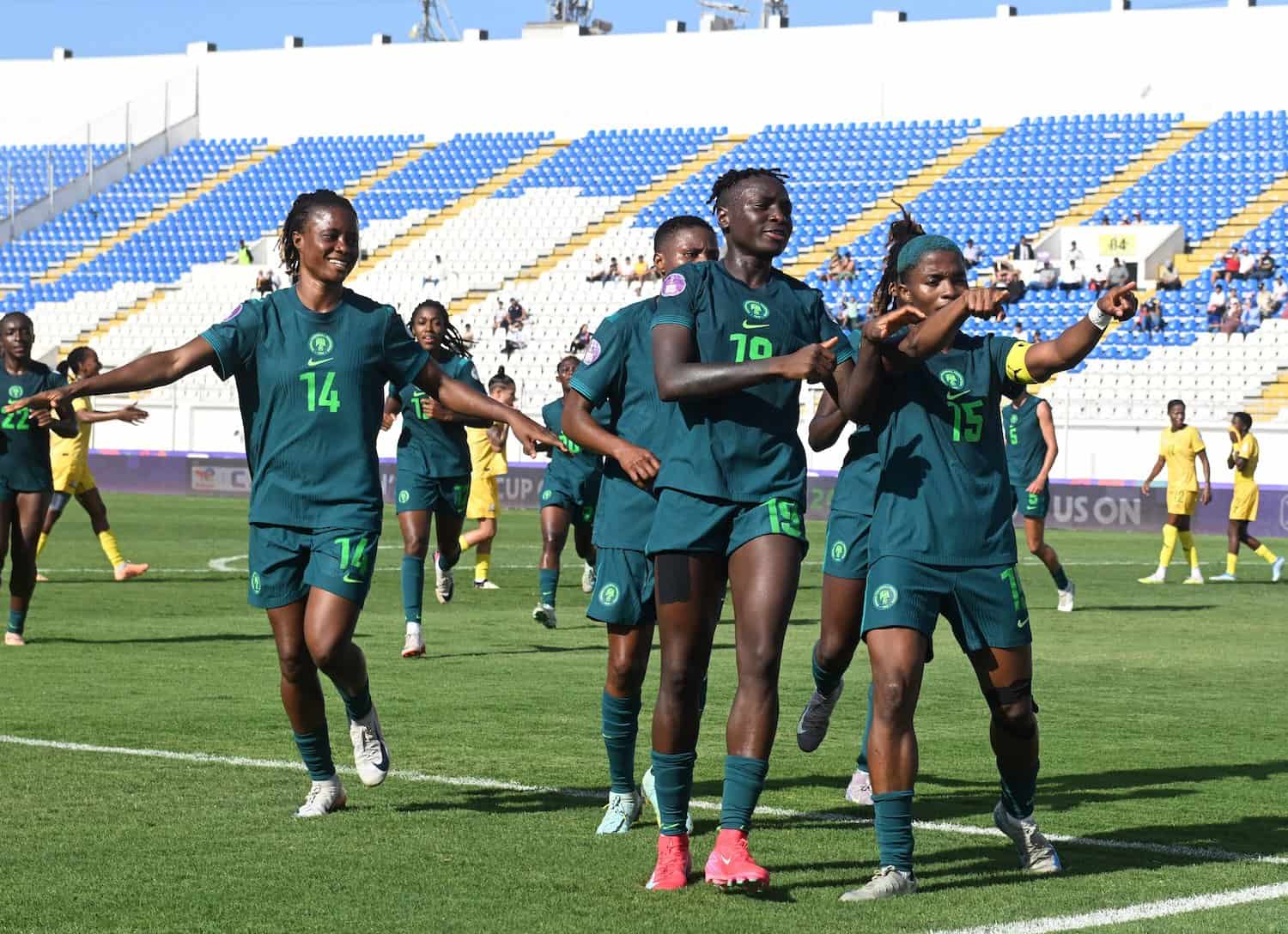In the fierce realm of African women’s football, few matches are as anticipated as the clash between South Africa’s Banyana Banyana and Nigeria’s Super Falcons. As the defending champions, Banyana Banyana carried the weight of expectations, stepping onto the pitch with both a title to defend and a story to tell. This year’s Women’s Africa Cup of Nations (WAFCON 2025) semi-final delivered high drama, emotional peaks, and a heartbreaking conclusion for the South African side.
Tough journey to the semi-finals
Banyana Banyana reached the semi-finals by showcasing grit and resilience, essential ingredients in the recipe for championship success. Their hard-fought victory over Senegal was emblematic of this spirit. After a grueling 120 minutes locked at 0-0, the quarter-final clash was decided in a thrilling 4-1 penalty shootout. Goalkeeper Andile Dlamini was the hero of the night, making crucial saves that steered South Africa into the next round.
The journey to this point had been anything but easy. According to coach Desiree Ellis, the Senegal encounter tested their mettle, as the team navigated nerves in the opening minutes while adapting to Senegal’s aggressive long-ball tactics. “We showed resilience and courage,” said Ellis, praising her team’s ability to withstand pressures and setbacks.
Setting the stage for Nigeria
Yet, facing Nigeria was an entirely different challenge. The Super Falcons, crowned WAFCON champions nine times, represented a formidable force. Their emphatic 5-0 thrashing of Zambia underscored their ability to dominate. But Banyana had a recent edge, having beaten Nigeria in two of their last three tournament meetings.
Gabriela Salgado, a forward for South Africa, embodied the team’s spirit of determination. “We must play like the champions we are,” she emphasized. Her confidence was a testament to the team’s preparation and the belief they carried onto the Casablanca pitch.
Drama and despair in Casablanca
The semi-final match between South Africa and Nigeria played out with all the tension and energy expected from two of the continent’s football giants. Physical battles characterized the game’s early phases, each team striving to establish control. Nigeria drew first blood when Rasheedat Ajibade converted a penalty, a decision that came after a VAR review following a handball by Bambanani Mbane.
Banyana’s response was swift and determined. When Linda Motlhalo converted a penalty after Hilda Magaia was fouled, it seemed as though momentum was shifting in their favor. Yet, the dominant narrative was soon overshadowed by a devastating turn of events.
Impact of Salgado’s injury
An incident in the 83rd minute left the team’s aspirations hanging by a thread. Gabriela Salgado, vital both on and off the field, sustained a severe injury. “It was heartbreaking,” said coach Ellis, reflecting on the visible impact on the team’s focus and composure.
The disruption proved costly. Deep into stoppage time, Nigeria capitalized on a moment of lapse. Michelle Alozie’s stunning long-range strike sealed Nigeria’s place in the final, leaving South Africa’s players and fans alike stunned and heartbroken.
Praise amidst the pain
Despite the devastating loss, sentiment from the Banyana camp, including SAFA president Danny Jordaan, was overwhelmingly supportive. “We are proud of your performance,” he commented, highlighting the broader implications of their resilience and skill.
The efforts of the South African team continue to show that they are more than just champions on the field. They are leaders advocating for systemic change in a sport that still struggles with funding and sponsorship challenges. Their on-field unity and off-field advocacy illustrate the development of women’s football under trying circumstances.
Looking towards the future
As the team prepares for the third-place playoff against Ghana, they carry with them the lessons learned from each match. This journey has been more than a quest for a trophy; it’s about solidifying their legacy. Gabriela Salgado, despite her current setback, emphasizes the community and mutual success within the team.
“We believe in each other,” she states. Her words echo a collective commitment to not only compete but to inspire the next generation of African women in sports. As Banyana Banyana turn their focus to the upcoming match, their eyes are set on not just reclaiming a title, but solidifying their role as champions in every sense of the word.






